December 1, 2024
Dear Friends of American Climate Partners,
I find messaging about climate is often confusing and too complex for anyone other than experts to comprehend. I was at a farm meeting a few days ago when some folks came up to me and asked, “Can you just simply tell us in 30 seconds what you guys think is the problem and how you’re going to fix it?” I said:
Well, there are three drivers of climate – water, carbon, and nitrogen. There is too much water and carbon in the sky, and too much nitrogen is in the ground and rivers. Pointing first to the sky and then to the ground, we need to move carbon and water from up there to down here. Then, pointing first to the ground and then the sky, we need to move nitrogen from down here to up there.
A wise old friend later told me that was the first time anyone ever explained what’s going on in a way she can understand and remember.
We often hear that individuals can’t do anything – the problem can only be fixed by oil companies. Thinking this way is a tragic self-inflicted wound, driven by well-meaning environmental writers for major US media outlets. Fossil fuel derived compounds are a constituent of nearly every product and service we purchase today. Our current economy is built on oil. Electric cars and solar panels are an important step in the right direction but they are only a part of our oil economy footprint. And even if Earth’s civilizations decided to shut down fossil fuel refining today, the existential threat, as the climate problem is often described, remains because carbon dioxide will last for thousands of years in the atmosphere.
We must accelerate the shift from a hydrocarbon (oil) to a carbohydrate (plant) economy, and while we do this we must also begin to fix the damage each of us has caused as consumers of oil-based products and services. Each of us has an obligation to act because we have created at least a portion of the problem. This is why we have created American Climate Partners.
Below, please find descriptions of each of our four programs – two visionary project developer entities and two contractor entities – synergized for action on land and water in the mid-Atlantic, Appalachia, and Southern regions to restore our climate.
Southern Climate Restoration Solutions
Southern Climate Restoration Solutions was launched in 2023 with the goal of working with landowners and other partners in the Southeast United States to develop natural solutions to restore our climate.
One way to think about climate is a 30-year average of weather; however, there are three fundamental drivers of climate and how it changes – the Water, Carbon, and Nitrogen cycles. The public focuses on natural disasters like wildfires, drought, Category 5 hurricanes and a thousand-year flood, but that doesn’t help us understand how the configuration of the cycles creates these adversities.
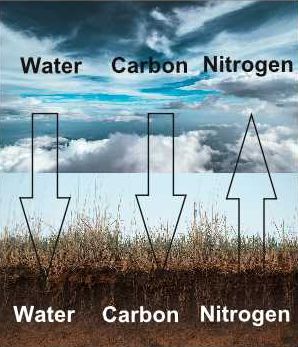
At the most basic level, there is currently too much Water and Carbon up in the atmosphere, and too much Nitrogen is down in the ground and rivers. Simply put:
Water and Carbon up, Nitrogen down = Bad
Water and Carbon down, Nitrogen up = Good!
The cost-effective way to achieve a better balance in these cycles is to piggyback on nature’s propensity to reset climate configuration.
Where to do this? The soil carbon sink, which is the largest on the planet, other than oceans.
How to do this? The same way the planet did before the rise of humans – the soil microbe ecosystem. For 11 years, our land management contracting program, SoilKeepers has pioneered soil microbe-based landscape management.
There is growing agreement in the scientific community that restoration of soil biology in depleted grasslands worldwide offers one of the best opportunities for drawdown of excess carbon and water vapor from the air. Our first step toward actualizing this vision is development of verification capacity – and where our partnership with USDA to roll out deep soil carbon testing to agricultural producers in the south fits like a glove.
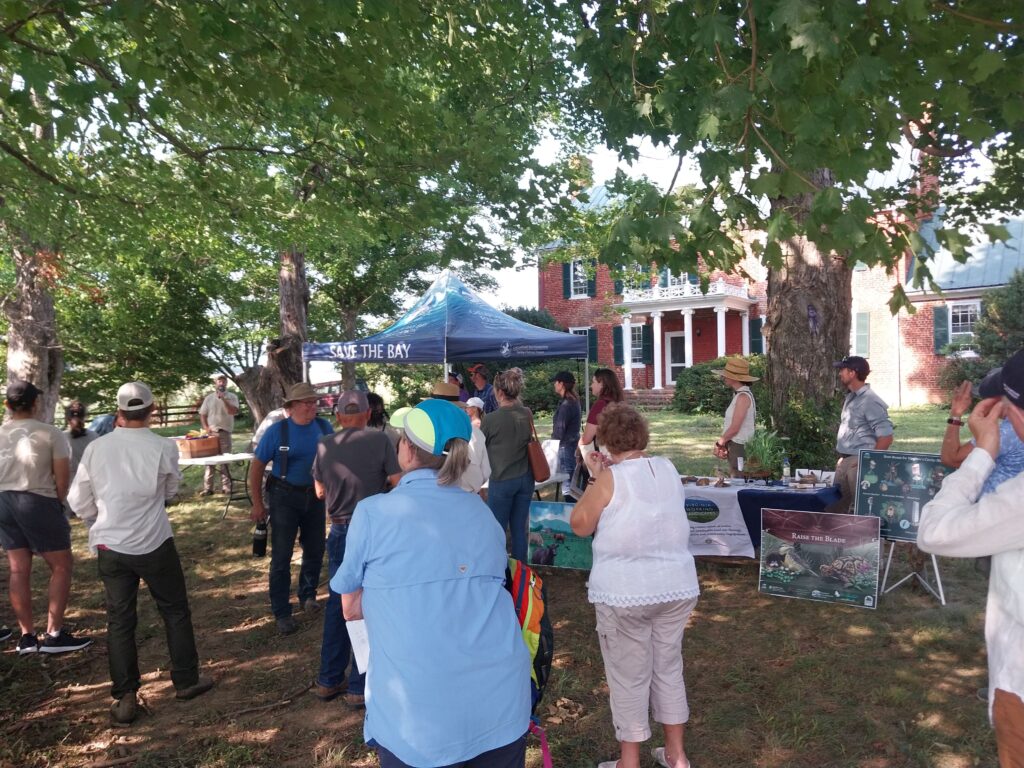
Through a major gift from the D.N. Batten Foundation, SCRS was launched in 2024 to begin development of information networks to identify natural solutions only the South can provide as a unique value proposition. Now that we have landed on perennial grasslands as one of those solutions, in 2025 we need seed funds to create a donor/investor support network for farmers to get compensated for extra management of their pasture and hayfields biochemistry.
SoilKeepers
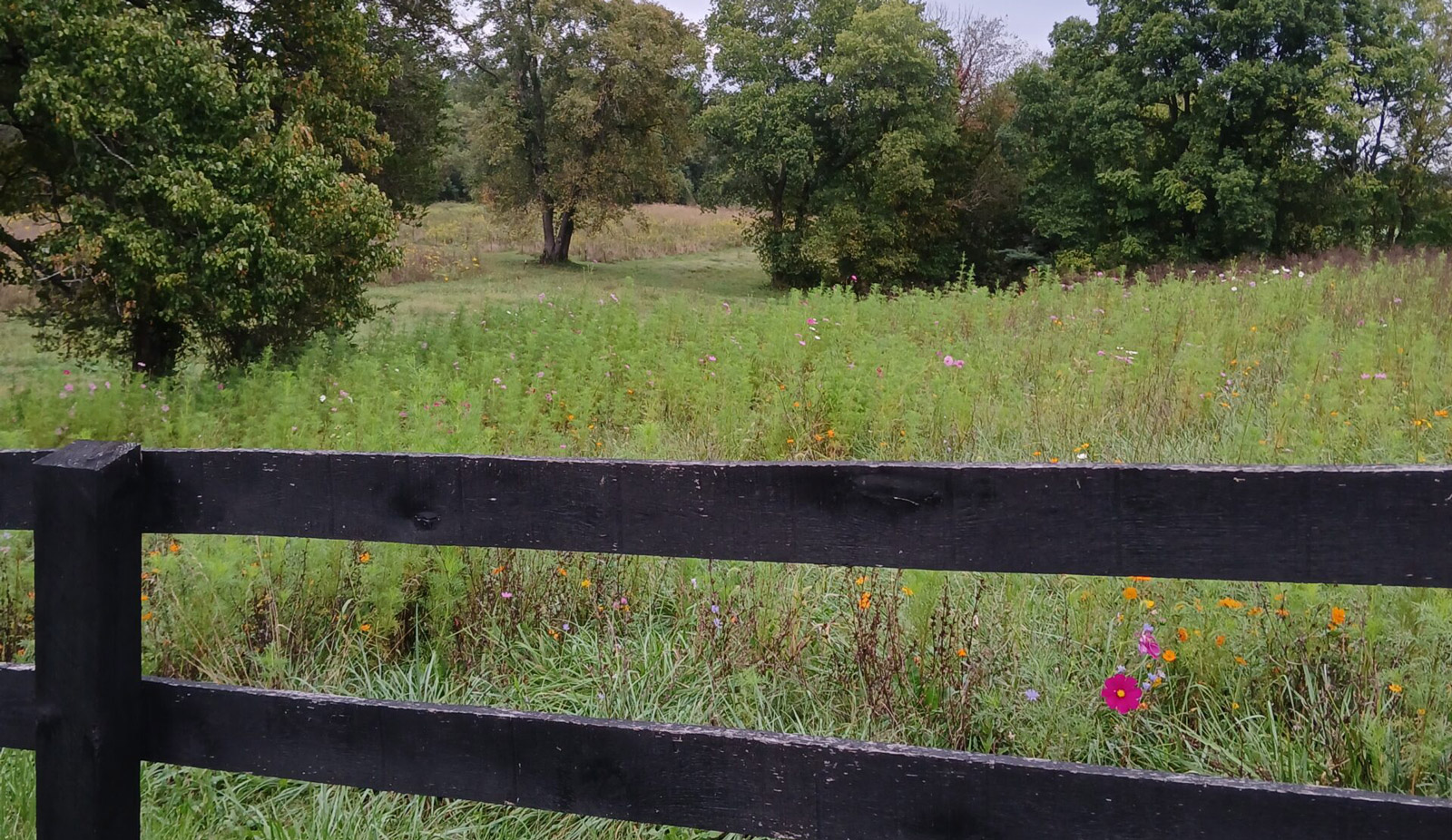
SoilKeepers is our fee-based regenerative landscape management and soil biochemistry verification service. The program has provided habitat and landscape management services to farmers, estate landowners, and energy companies since 2013 and is now including verification of the impact our Southern Climate Restoration Solutions land management programs and projects have on the drawdown of carbon and water from the air. Recent work for new clients includes sustainable grounds management of an international non-profit HQ in the Northern Piedmont, turf management at a Charlottesville vineyard with tasting room and conference center, and soil softening for a Central Virginia steeplechase course.
The work of SoilKeepers requires attention to detail about the natural world. Unlike conventional landscape management, where the soil is no more than a receptacle for fossil fuel compounds, our focus is on the health of microbes below the soil surface, to the betterment of the large animals above. It is this focus on the health of the soil ecosystem that is the hallmark of what we and others refer to as regenerative management and is part and parcel of the organic and permaculture agricultural movements.
Australian soil health guru Christine Jones says that you can throw away 99% of what U.S. land grant institutions historically have taught their students about agriculture – if one is interested in regenerative management. The reason for this is as simple as understanding that research silos exist – and microbiology researchers rarely talk to horticultural researchers.
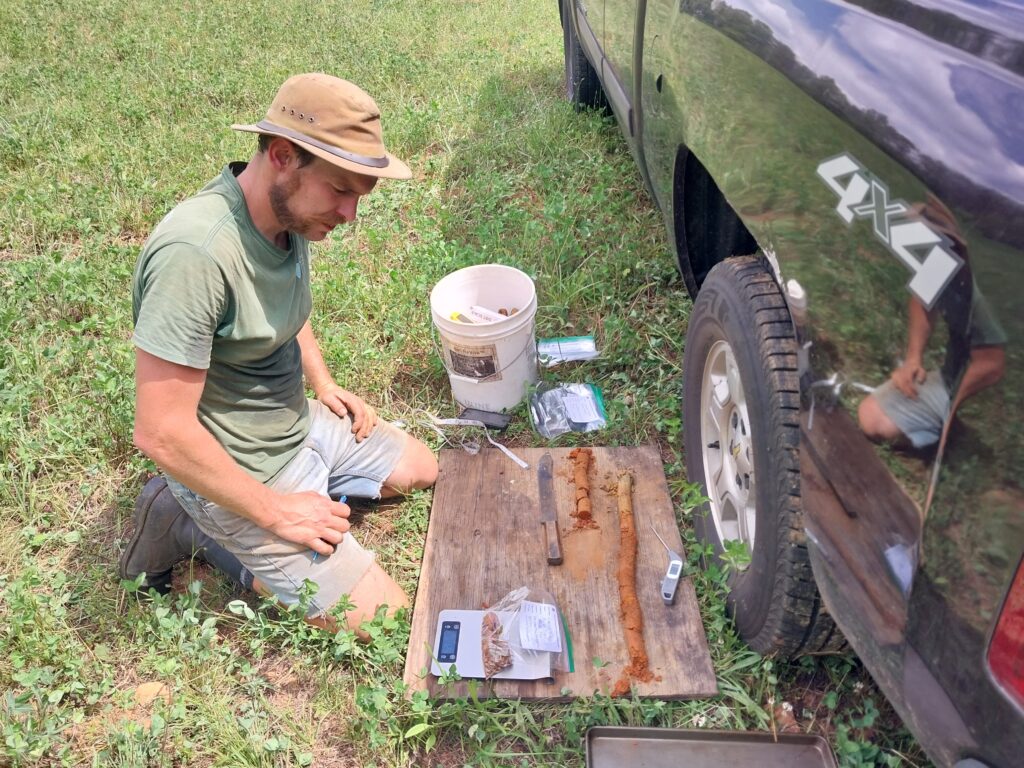
SoilKeepers is our only bona-fide fee-based program. But just as a private school needs to fundraise to augment student enrollment fees for capital projects, SoilKeepers needs donor support to continually develop innovative methods of land management, the entire cost of which are simply not funded by client fees.
Donor support is needed to cover what fees cannot.
Rapidan Institute
Rapidan Institute was created in 2020 to enable American Climate Partners to focus on comprehensive fisheries and floodplain habitat restoration in the Rapidan and Robinson River Valleys.
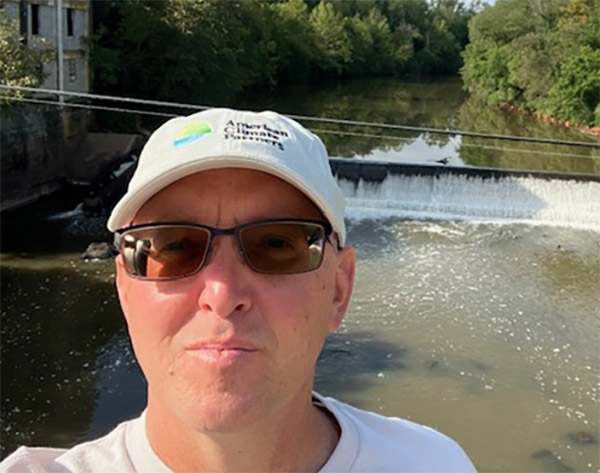
Dr. Shawn Young joined our staff August 1, 2024, to lead the Institute and the Rapidan Fish Passage Project (RFPP). Over the next 18 months, Shawn’s focus will be on leading a team of environmental engineers and scientists to complete final engineering planning and design for the most effective, maintenance free, and economic solution to create fish passage at Rapidan, Virginia. Experts across the U.S. agree that this is a nationally significant project and the #1 fish passage project in the entire Chesapeake Bay basin.
Shawn’s doctoral work at Clemson focused on American Shad and related species and most recently he was Fish and Wildlife Director for the Kootenai Tribe in Idaho where he supervised multi-million-dollar habitat restoration projects. Shawn will not only lead the fish passage project but also move forward with implementation of the Virginia Beaver Working Group in 2025, an initiative to shift the regulatory community’s thinking about North American Beaver. Historically considered little more than a nuisance rodent, rangeland ecologists have recently come to understand that conservation resources are woefully inadequate to restore waterways – but working with nature, and in this case beaver dams, wildlife can be used as a tool to reduce sediment and nutrient loss to the Cheseapeake Bay, and reconnect incised rivers to their floodplain, and in so doing reduce flood impacts from Hurricanes.
Shawn’s responsibilities also include taking the first steps toward creating a Rapidan Watershed Resiliency Plan – an effort to integrate climate and biodiversity into river watershed restoration programming. In this groundbreaking effort, we will build off lessons learned from the establishment and management of the Perdue Experimental Station in Somerset, where, through our SoilKeepers Regenerative Management program, we have been testing more biodiverse and cost-effective methods to restore and reconnect Eastern Rivers to their floodplains. To us, this is what innovation in water and land climate restoration looks like. The Institute depends on private donors and public and private grants to pay for programming.
StreamSweepers
StreamSweepers is an award-winning, interstate river restoration, job training, and work experience program for young adults and veterans. It is the largest program of its type on the East Coast. To date, we have cleaned thousands of tires and tons of other trash from rivers in the Rappahannock River watershed of Central Virginia and the Clinch River watershed in Southwest Virginia.
In 2024, we launched the Central Appalachia Clean-Up to focus on the Upper Big Sandy watershed in Southwest Virginia, Southeast Kentucky and southern West Virginia by convening an organizational meeting with stakeholders and partners, opening an office in Grundy, Virginia, and pursuing a pilot clean-up project on the Tug Fork River in West Virginia.
In the aftermath of Hurricane Helene, StreamSweepers has added disaster relief services in Southwest Virginia and Tennessee to its programming, focusing immediately on Damascus.
Support is needed to hire additional disaster relief staff in 2025.




Innovation always comes from entrepreneurs daring to think what others see as foolish or impossible. Now in our 18th year we have evolved and are thriving.
Please consider making a year-end charitable gift to American Climate Partners online. Together we will help lead the climate restoration movement through the development and verification of natural solutions in the rural areas of our nation.
Sincerely,

Michael C. Collins
Executive Director
Down memory lane…
See our 2023 Annual Update | 2022 Annual Update
